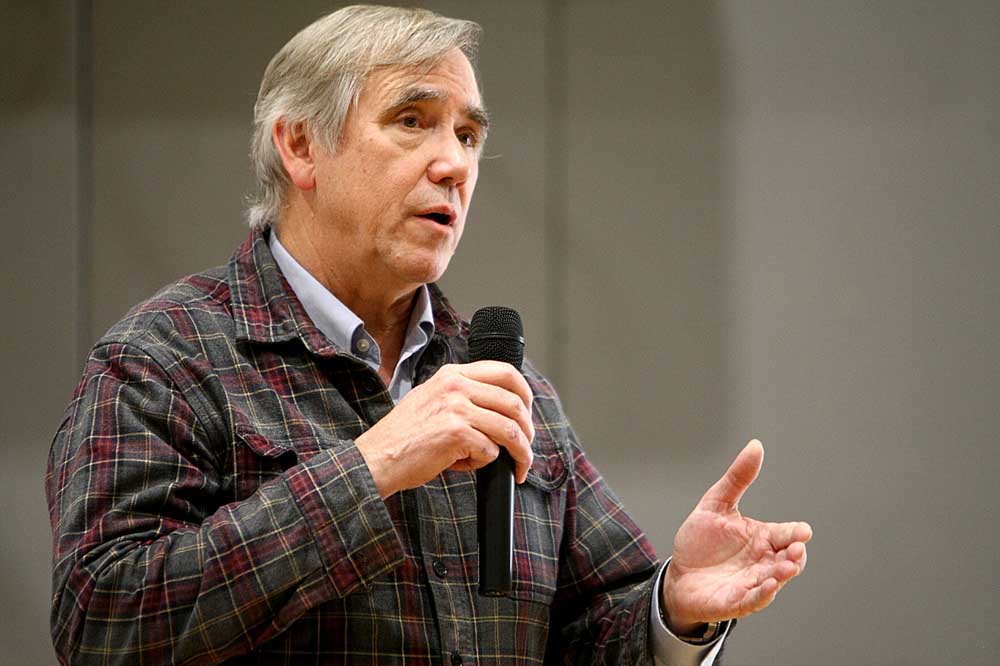Gubernatorial candidates meet in last debate
Published 8:00 am Thursday, October 20, 2016
PORTLAND — Gov. Kate Brown and Bud Pierce, Republican candidate for governor, faced off Thursday in their fifth and final debate before the Nov. 8 election.
Panelists from The Oregonian and KGW 8 — which hosted the debate — quizzed the candidates on their approaches to the foster care crisis, how much they’d earmark for education out of a corporate sales tax measure and ideas for reducing the cost of health care.
Trending
Pierce, a Salem oncologist, is trying to unseat Brown to complete the last two years of Gov. John Kitzhaber’s four-year term. As former secretary of state, Brown succeeded Kitzhaber when he stepped down in February 2015 amid an influence-peddling scandal over contracts awarded to his fiancée, Cylvia Hayes.
Foster care crisis
A KGW 8 Facebook user asked the candidates — via moderator Tracy Barry — what their plans are to ensure all children in foster care are able to stay in an home environment not a hotel or Department of Human Services Office.
“We have to do a better job of recruiting families and taking foster children and giving these families support,” Pierce said. “They deserve that. We can’t accept failure.”
“How in the world can this happen?” Barry asked, turning to Brown. “Governor, this is happening on your watch.”
Brown responded that she has brought in new leadership to DHS.
Trending
“We have done extensive work to change both the leadership at the agency and working very hard to make sure we have the right systems in place, but some of this is a resources issue.”
Brown said that caseworkers have too many cases and there aren’t enough resources to train foster parents.
Health care
KGW reporter Laural Porter noted that health care costs continue to increase, including insurance rates.
“Some companies are choosing to leave the market,” Porter said. “What would you do to increase access to health care while also driving down the cost of health care for average Oregon families?”
Brown said her top priority for the next two years is to make sure every Oregonian has access to health care.
“In terms of reducing cost, we need to look at social determinants of health,” Brown said. “We know for example that outcomes are better in terms of health care if everyone has a safe and stable house to live in.”
Pierce said having more Oregonians working would increase people’s access to health care. Competitive health care delivery, generic pharmaceuticals and promotion of health care innovation could help reduce costs.
Measure 97
Brown sidestepped a question concerning how much of a $6 billion corporate sales tax measure on November’s ballot she would dedicate specifically to education. Proponents of Measure 97 — the 2.5 percent tax on certain corporations’ Oregon sales exceeding $25 million — have said much of the revenue would support smaller class sizes and other education benefits.
Pierce said his state budget proposal would augment education funding with $1.4 billion. If Measure 97 passed, he said, he would provide full funding to meeting the standard of the Quality Education Model of about $2 billion.
Brown also declined to answer a question about whether if she wins election, she’ll seek another term in 2018.
Her former campaign manager has said, however, that he was hired to run her campaigns through 2018.
Brown holds a strong lead over Pierce in polls so far and has raised about $4.5 million for her campaign. Pierce has self-funded nearly half of his campaign, which has raised about $3.2 million.
President Barack Obama endorsed Brown on Thursday, commending her for accomplishments such as increasing minimum wage, boosting career technical education and landmark renewable energy laws.





